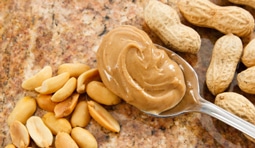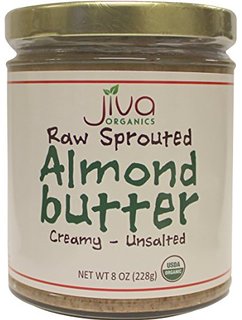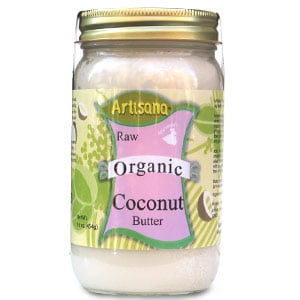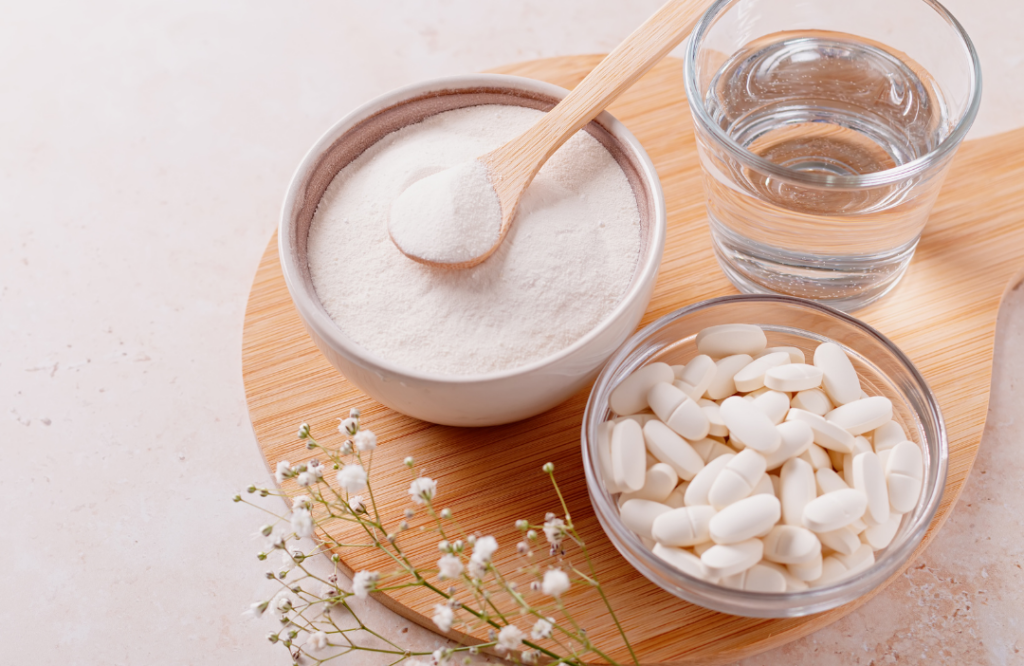The Problem with Peanuts: Peanut Butter Nutrition Explained
Published on July 5, 2015 by Dr. Caitlin Gordon
 Peanuts aren’t problematic in small quantities, and are a good source of protein and fat like all nuts and many legumes (for the purpose of this article I will be referring to the peanut as a nut, and not a legume), lending them some health benefits. However, compared to other nuts, they are my least favorite. Let’s dive into peanut butter nutrition.
Peanuts aren’t problematic in small quantities, and are a good source of protein and fat like all nuts and many legumes (for the purpose of this article I will be referring to the peanut as a nut, and not a legume), lending them some health benefits. However, compared to other nuts, they are my least favorite. Let’s dive into peanut butter nutrition.- Peanuts have high levels of omega 6 compared to omega 3 which makes them pro-inflammatory. Our diets tend to be too high in omega 6 and low in omega 3 due to the prevalence of vegetable oil in everything (among other reasons). This is one major factor in the development of heart disease.
- Due to peanuts’ soft shell and a moist underground growing environment, they are very prone to mold, even the organic ones. The mold they are frequently contaminated with is called aflatoxin and is carcinogenic. Non-organic peanuts are heavily sprayed with pesticides which reach the peanut through the soft pod.
- In Traditional Chinese Medicine, peanuts are considered thermally “hot” and also “damp”, which basically means they can exacerbate conditions like pain, heaviness, brain fog, grogginess in the morning, yeast issues, water weight, dandruff, sugar cravings, etc. Certain people at certain times tolerate peanuts better than others. It all depends on your individual symptoms and constitution.
Can’t live without peanut butter?
- Arrowhead mills organic peanut butter is from peanuts grown in New Mexico where aflatoxin is very uncommon due to the dry conditions. Organic= pesticide free. Also, if you pour off the oil that settles at the top of the jar you lower the omega-6 content, and you can add back in olive oil or macadamia nut oil or even coconut oil to balance out the healthy fats
Wonderful Peanut Butter Alternatives
 If the peanut butter nutrition info has you turned off, try some healthier alternatives. Nut butters are a nutritious way to add fat and protein to your daily diet. There is research showing people who eat nuts each day weigh less and live longer. I used to avoid nuts thinking they were too high in calories and would cause me to gain weight. I now eat at least 2 servings of nuts a day and I’m the leanest I’ve ever been. Don’t be scared! A few tips for picking healthy nuts:
If the peanut butter nutrition info has you turned off, try some healthier alternatives. Nut butters are a nutritious way to add fat and protein to your daily diet. There is research showing people who eat nuts each day weigh less and live longer. I used to avoid nuts thinking they were too high in calories and would cause me to gain weight. I now eat at least 2 servings of nuts a day and I’m the leanest I’ve ever been. Don’t be scared! A few tips for picking healthy nuts:
- Avoid added oil and sugar. Many commercial nut products add sugar and palm oil or other hydrogenated oils to their nut butters. Both are unhealthy and should be avoided. If you need extra sweet, add a little of your own raw honey at home. If you need more reasons to avoid sugar: The Sugar Diaries
- Raw is king. Roasted nuts taste delicious, but the majority of you nut intake should be raw. Raw notes contain all their healthy omega-3 fats, which get destroyed by heat (roasting, toasting, baking).
- Go organic. Nuts are highly sprayed crops and the pesticides get passed along to you. High blood levels of pesticides from non-organic produce have been linked to nerve problems and various cancers, and are dangerous during pregnancy. Non-organic nuts are irradiated which damages the healthy essential fatty acids, so organic nuts have higher nutritional value.
- Sprouted. The best way to consume nuts is by soaking or sprouting them first (or purchasing sprouted varieties). This process reduces the phytic acid naturally present in nuts and seeds. Phytic acid impairs digestive function (by inhibiting pepsin, a digestive enzyme) and interferes with the body’s ability to absorb minerals from food.
- Walnuts vs Peanut Butter Nutrition
- Walnuts are full of healthy fat and peanut butter nutrition just can’t compete. There are 26 grams of fat in a third cup of walnuts. While this might turn some people off, walnuts are actually shown to help people avoid weight gain. One study showed that eating about a half cup of walnuts a day for 8 weeks significantly improved the blood vessel function in the participants and did not lead to weight gain despite the fact that this represented about 350 calories of nuts. Eating more walnuts was even associated with a decline in waist circumference. Walnuts contain a special kind of vitamin E, which has been found to provide protection from heart problems. Walnuts are full of phytonutrients, which have anti-inflammatory and antibiotic properties to help protect against type 2 diabetes, cardiovascular disease, and certain cancers. They are very high in healthy omega-3 fats. Chinese Medicine highly regards the walnut for its ability to help boost brain power and focus, as well as support a healthy kidney system.
- You can now buy raw organic walnut butter! It is expensive but so nutritious. Money spent on healthy food now will be saved on medical bills later in life.
- Almonds vs Peanut Butter Nutrition
- Almonds like peanuts contain healthy fiber, protein, and fat. Almonds have the advantage of being much higher in Vitamin E, an anti-aging antioxidant, with nearly 27% of your RDA in 1 tablespoon. Almonds contain twice as much magnesium as peanuts and are higher in iron.
- Coconut vs Peanut Butter Nutrition
- Raw Coconut butter is a good alternative to other nut butters with high-fat
 content which helps keep your blood sugar stable and reduce inflammation. When I first tried it, I thought it tasted weird, but it grew on me and now I love it. Give it a chance.
content which helps keep your blood sugar stable and reduce inflammation. When I first tried it, I thought it tasted weird, but it grew on me and now I love it. Give it a chance. - Coconut oil is about 50% lauric acid, which is a rare fatty acid that supports a healthy metabolism. It is found in breast milk! The properties of coconut oil are being studied for their antiviral, anti-fungal and antibacterial properties. Research shows that components in coconut oil have a unique ability to kill bad bugs in our bodies while leaving our good bacteria alone.
- Raw Coconut butter is a good alternative to other nut butters with high-fat
*If you’re interested in getting personalized nutrition advice based on your Traditional Chinese Medicine pattern to help treat pain, allergies, weight gain, autoimmune conditions, fatigue, or any number of chronic conditions, contact Caitlin for an appointment in Denver or Boulder or set up a Telemedicine Appointment.
The contents of this site, including text, graphics, images, and other material are for informational purposes only. Nothing contained in this site is or should be considered or used as a substitute for professional medical or mental health advice, diagnosis, or treatment. Please schedule an appointment for personalized health advice.






